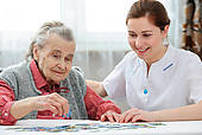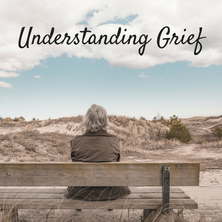
According to Bridges (1998) The major mission of caregiving is to promote independence by maintaining the person with dementia, or other illness, in his/her most functional state – physically, intellectually, emotionally, and spiritually.
When taking care of others, the gift of our attention is valuable, virtuous, and effective. It is also very difficult. Forgive yourself for becoming annoyed, tired, lonely, frustrated, or any of the other emotions that may arise.
The need for respite – No one can maintain the constant keenness and intensity of mental attention or the constant level of physical assistance that is required in caring for a person with dementia or other illnesses. Times of respite are essential to avoiding Compassion Fatigue.
A Caregiver's Bill of Rights
By Jo Horne
I have the right:
- To take care of myself. This is not an act of selfishness. It will give me the capability of taking better care of my loved one.
- To seek help from others even though my loved ones may object. I recognize the limits of my own endurance and strength.
- To maintain facets of my own life that do not include the person I care for, just as I would if he or she were healthy. I know that I do everything that I reasonably can for this person, and I have the right to do some things just for myself.
- To get angry, be depressed, and express other difficult feelings occasionally.
- To reject any attempts by my loved one (either conscious or unconscious) to manipulate me through guilt, and/or depression.
- To receive consideration, affection, forgiveness, and acceptance for what I do, from my loved ones, for as long as I offer these qualities in return.
- To take pride in what I am accomplishing and to applaud the courage it has sometimes taken to meet the needs of my loved one.
- To protect my individuality and my right to make a life for myself that will sustain me in the time when my loved one no longer need my full-time help.
- To expect and demand that as new strides are made in finding resources to aid physically and mentally impaired persons in our country, similar strides will be made towards aiding and supporting caregivers.
Life is not what it's supposed to be. It's what it is. The way you cope with it is what makes the difference.
Virginia Satir
916-225-3570 [email protected] http://www.cjwatterslaw.com






 RSS Feed
RSS Feed